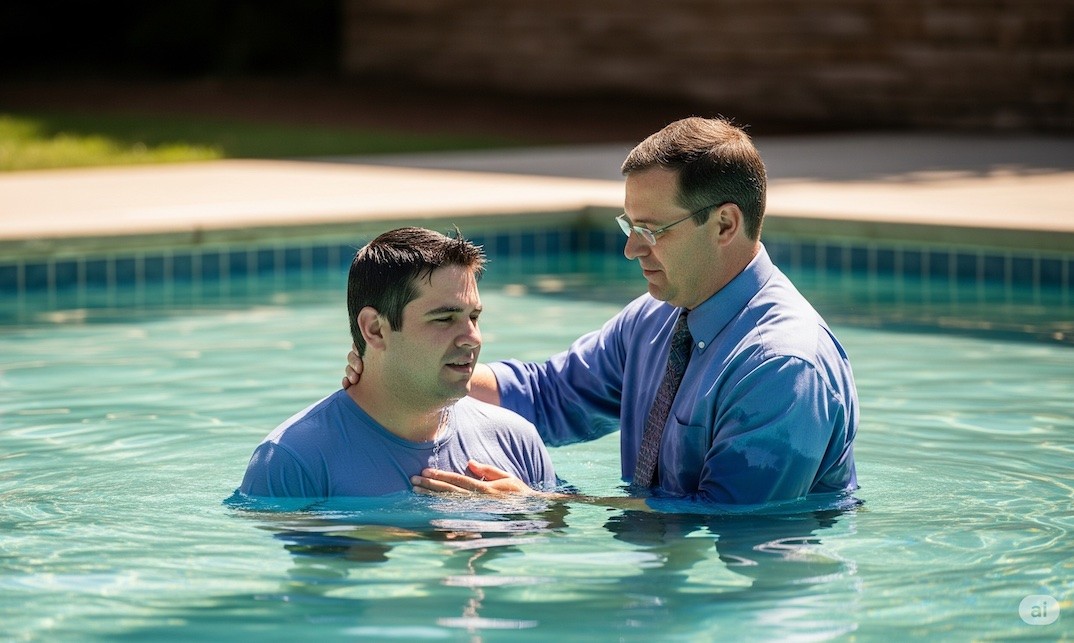“...and they went down both into the water, both Philip and the eunuch; and he baptized him.” (Acts 8:38)
Part One of this mini-series on baptism addressed the question, “Who should be baptized?” God’s Word indicates that baptism is for believers only. As infants cannot confess their faith, they should not be baptized. If someone has been baptized as an infant, it seems scripturally appropriate that he or she should later be baptized if he or she has come to know Christ as Savior.
Is baptism by immersion? For a number of reasons, I believe the Bible shows us that it is. New Testament words point us to baptism by immersion. The first century Greek word that gives us our English words baptism, baptize, baptist, and the like, is routinely translated “to dip” or “to immerse”. Even before New Testament times, it had that meaning. Alongside dipping or immersing, it often meant “to dye” or “to identify with.” These follow logic, since something that has been dipped into ink, for example, has been dyed with it. The inky color and nature would cause those who see it to say that the dipped object has been identified with the ink. In one form or another (baptize, baptized, baptism, etc.), the Greek word appears more than one hundred times in the New Testament. It consistently fits the meaning of dipping or immersing.
New Testament concepts point us to baptism by immersion. When Philip baptized the newly converted eunuch (who was not an infant, by the way), they both went down “into the water” (Acts 8:38). The two could have stopped the chariot at any time if pouring a gourd full of water was all that was needed. They waited, instead, until they came to “a certain water” (8:36), and actually went into the water for baptism. The concept of immersion naturally fits there; other modes of baptism do not. Likewise, John 3:23 records John the Baptist baptizing many. He did so “in Aenon near to Salim”. Why there? “Because”, the verse continues, “there was much water there”. The amount of water matters only if immersion is in view.
Luke commends the Bereans because they “received the Word with all readiness of mind, and searched the scriptures daily, whether those things were so” (Acts 17:11). May we be the Bereans of our generation as we study, pray, and obey in matters like baptism.




